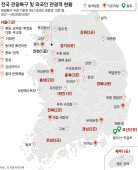Companies Seeking to End Smoking by Workers
Companies Seeking to End Smoking by Workers
Posted January. 25, 2010 08:52,
A worker at Woongjin Holdings says he is afraid that a second urine test will show he smokes to his company.
He smoked a pack of cigarettes every day for 15 years but in October last year, he pledged to quit smoking with his colleagues. That pledge was broken this month at a drinking session, however.
After smoking at the recommendation of my colleagues when drinking, I felt comfortable smoking, he said. I recently quit smoking again, but I am afraid of the urine test.
The companys parent Woongjin Group said yesterday that 1,002 of its workers (17.6 percent) who pledged to kick the habit were tested for smoking last month. Among them, 254 were found to have broken their anti-smoking pledge.
Those who failed to stay off cigarettes had agreed to each return a bicycle worth 300,000 won (262 U.S. dollars) they received from the company in return for their pledges, and do four additional hours in community service.
Anti-smoking campaigns by companies are getting tougher. When GS Caltex began its drive in 2007, workers who quit were given cash prizes while those who did not were fined.
Workers agreeing to an anti-smoking campaign put 100,000 won (87 dollars) into an anti-smoking fund. They received 260,000 won (227 dollars), including the 100,000 won, if nicotine was not detected in their urine six months afterwards. If detected, their money went to charity.
In spring last year, the countrys largest steelmaker POSCO launched a stronger crackdown on smoking. Under its policy of low carbon, green growth, it launched a three nos campaign: no smoking, no use of disposable cups, and no paper waste. As part of the campaign, the company included a nicotine test in medical check-ups for employees and eliminated smoking places inside its headquarters.
Rumors flew that employees would face a blood test in addition to the urine test and that the test results would be reflected on their job performance. This brought on resistance by certain workers, who said the plan suppresses individual taste.
To this, the company said, POSCO Chairman Chung Joon-yang warned executives to quit smoking if they want to work with him, and this comment was wrongly conveyed to workers. There will be no disadvantages in personnel matters.
The anti-smoking campaign of the Woongjin Group is the most rigorous in the country, however.
Woongjin Group Chairman Yoon Seok-keum sent a letter to smoking workers in May last year saying, Quitting smoking is the easiest and the most fundamental way to boost health and cut CO2 emissions.
By doing so, 56 percent of the 1,800 smoking workers pledged to give up the habit. New employees were also made to take an anti-smoking pledge, and smoking workers must perform four more hours of community service than non-smokers (16 hours).
The anti-smoking campaigns have gradually produced tangible results. At GS Caltex, which has implemented its drive for four consecutive years, 40 percent of smoking workers have kicked the habit.
Of those who pledged to quit smoking, 75 percent did so after three months. This reduced the Woongjin Groups share of smokers from 31 percent to 21 percent last month, the group said. We look forward to having no smokers at the company by the end of this year.
nuk@donga.com
Headline News
- N. Korea redefines S. Korea as ‘hostile state’ in revised constitution
- Samsung develops graphic DRAM with industry-leading capacity and speed
- Three questions allegedly leaked via text message during Yonsei Univ. essay test
- China to inject 340 trillion won in loans to support real estate sector
- Dodgers beat Mets to take 2-1 lead in NLCS







